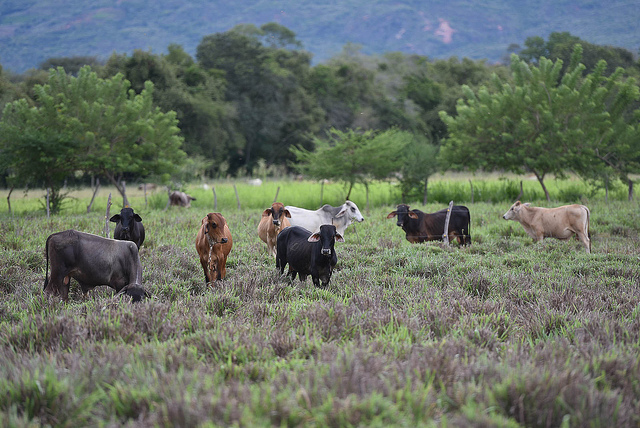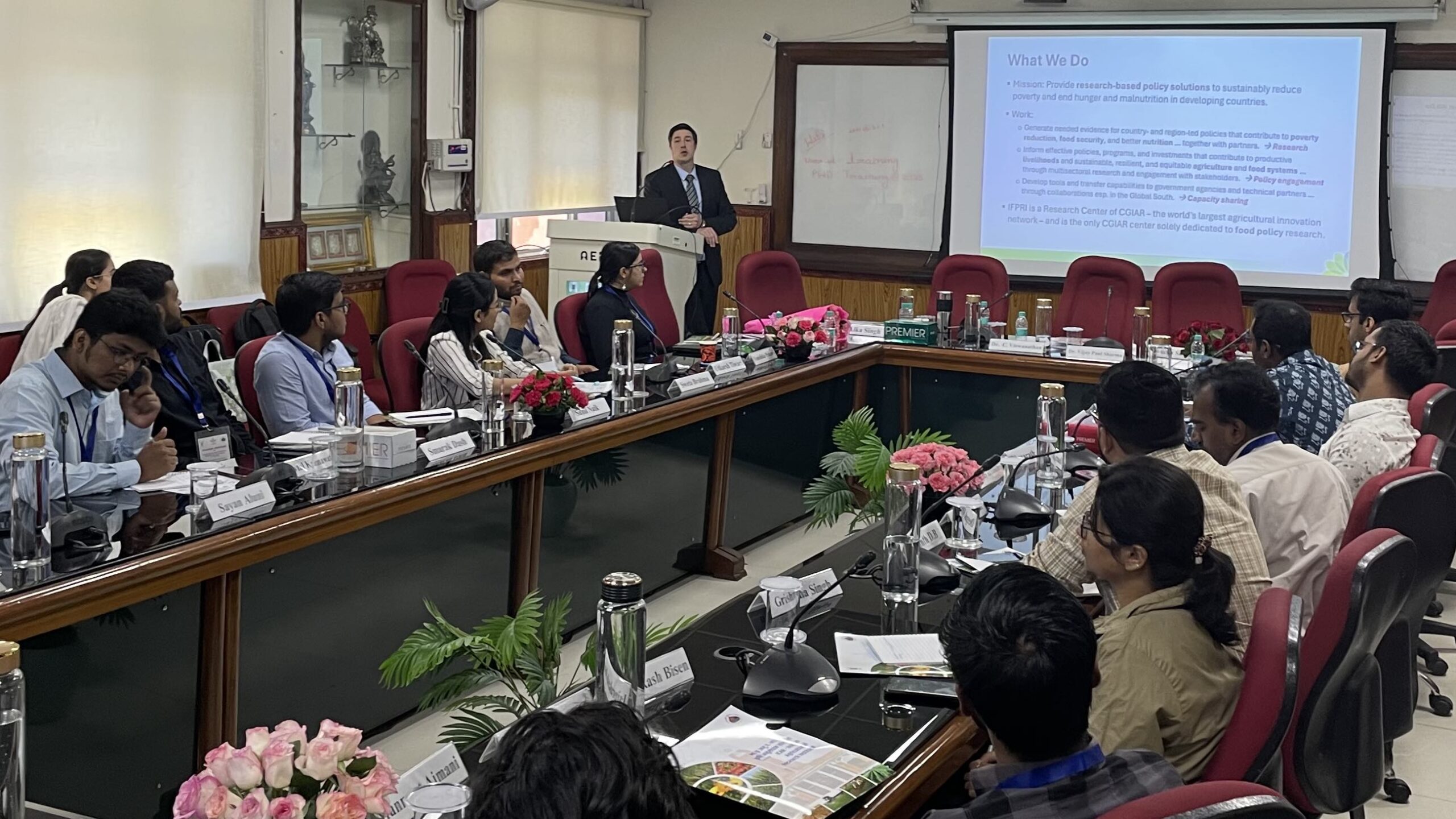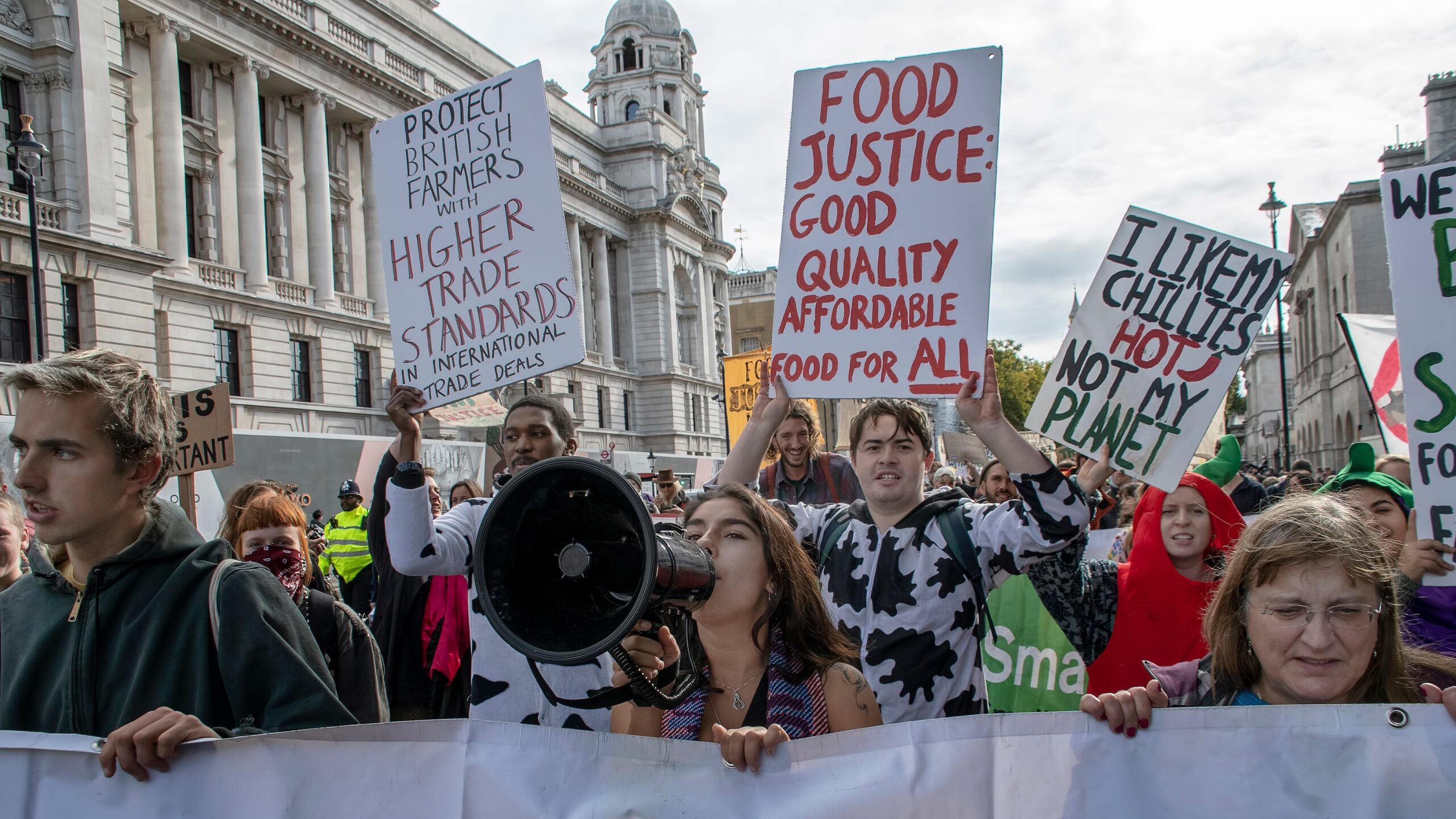Using IFPRI’s IMPACT model, a team led by Senior Research Fellow Alex De Pinto has identified agricultural policy options that support climate change mitigation and resilience and are compatible with national development goals. The government of Colombia used the results in 2015 to develop policies that mitigate emissions and to help meet its commitments under the Paris Climate Agreement. The researchers suggest that other countries can do the same.
In an article published in the journal World Development, the researchers presented a modeling framework for analyzing a range of policies that target emissions reductions in the agricultural sector in Colombia.
Analysis that policymakers need
To develop agricultural and land-use policies that allow for long-term development while decreasing the contribution to climate change, governments need tools that evaluate trade-offs, opportunities, and repercussions of all options.
Policies that solely aim to reduce emissions, for instance, could ultimately reduce or increase area allocated to crops, pasture or forests, or affect yields and production costs. Policymakers need to meet multiple objectives, including food security, support of livelihoods, and reduced greenhouse gas emissions.
Reducing projected increases in greenhouse gas emissions requires transformative approaches that improve the efficient use of resources, including optimizing use of fertilizers, water, and fossil fuels in agriculture production; reducing food loss and waste; and shifting to foods that yield lower emissions. In Colombia, policymakers worked with De Pinto’s research team to analyze how such strategies might impact other objectives such as food security or export goals.
Government of Colombia leads
Both the public and private sectors in Colombia are working to identify low emissions development pathways in agriculture and land use that do not negatively impact farmers’ profits. Working with both sectors in a series of stakeholder meetings, the researchers identified a series of policy targets. Priorities included the use of pastureland and cattle raising, the use of forests, and the problem of deforestation caused by annual crops or oil palm cultivation. Results of the analysis are summarized in the image below.
Figure 7.1, De Pinto et al. 2016
Visualization of trade-offs between profits and greenhouse gas emissions reductions for policies simulated in the models. “Win-win” solutions – those with increased profits for farmers and decreased total emissions – are in the upper left quadrant.
Results indicated that the Colombian government should focus on these efforts:
- Investing in increasing the efficiency and productivity of the livestock sector to reduce the area allocated to pasture and reduce the rate of deforestation in the Amazon forest. This is actually preferable to policies that only target deforestation or a reduction of emissions from crop production.
- Incentivizing the efficient use of inputs in the cultivation of strategic crops, including oil palm, sugarcane and soybean, which will also help meet both biofuel and dietary demands.
Using this research, Colombia was one of the first Latin American countries to submit its Intended Nationally Determined Contribution (INDC) in 2015. (Read more about the development of the INDC and its presentation at COP21.)
Global relevance
The analytical framework De Pinto and his colleagues propose can be applied in any country interested in developing policies that balance socioeconomic concerns and the need for expanded agricultural production with the demands of climate adaptation and mitigation.
Researchers worked with a number of organizations in the Colombian public and private sectors, including the Ministries of Agriculture and Environment, the Colombian Cattle Ranchers Federation (FEDEGAN), the Colombian Farmers Society (SAC), the National Cereal Growers Federation (FENALCE), the National Potato Growers Association (FEDEPAPA), the National Forestry Research and Promotion Institute (CONIF), Javeriana Pontifical University, and the National University of Colombia. This work was supported by U.S. Agency for International Development (USAID) and the CGIAR research programs on Climate Change, Agriculture and Food Security (CCAFS) and Forest, Trees and Agroforestry (FTA).
Emil Caillaux is a communications specialist at IFPRI; Julianna White is program manager for low emissions agriculture research at CCAFS.
A version of this post appeared originally on the CCAFS site.







